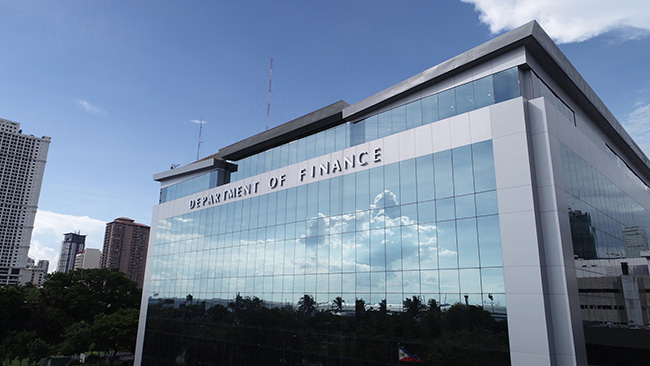by Leira Mananzan, Reporter
RA 12214, officially known as the Capital Markets Efficiency Promotion Act (CMEPA), is now in effect as of July 1, 2025. The Department of Finance (DOF) has recently stepped up to clarify widespread misinformation regarding the new 20% tax on bank deposits.

In a statement, the DOF stressed that this tax applies only to the interest income earned from deposits and not on the principal or total amount saved, countering viral rumors that the government is taxing Filipinos’ entire savings.
“Huwag maniwala sa fake news. Maging mapanuri sa mga articles at posts na kumakalat online na ginawa para magpakalat ng maling impormasyon,” the DOF warned in a public advisory about RA 12214, urging Filipinos to critically assess inaccurate articles and social media posts spreading false claims about the law.
What RA 12214 (CMEPA) does: Harmonizing, simplifying taxation

RA 12214 (CMEPA) imposes a uniform 20% final withholding tax on all interest or monetary income earned from currency bank deposits, deposit substitutes, trust funds, and similar financial arrangements, as stated explicitly in Section 6 of the act.
Before this law, the tax system was tiered and complex:
- Interest on deposits with maturities under 3 years was taxed 20%.
- Deposits with maturities of 3 to less than 4 years faced a 12% tax.
- Deposits with 4 to less than 5 years maturity had a 5% tax rate.
- Deposits longer than 5 years were fully exempt from tax.
- Foreign currency deposit units earned interest, taxed at 15%.
This complexity favored the wealthy, who could afford to lock away funds in long-term deposits and enjoy tax exemptions, while ordinary Filipinos mostly paid the 20% tax on shorter-term deposits.
Bangko Sentral ng Pilipinas (BSP) data cited by the DOF revealed that prior to RA 12214, 99.6% of total deposits were already being taxed at 20%, while only 0.4% benefited from preferential rates under the older tax scheme.
By standardizing the tax on interest income at 20%, RA 12214 (CMEPA) corrects the inequitable system that unfairly burdens small savers unable to leave money locked up for extended durations. This rationalization simplifies tax compliance and levels the playing field across all deposit maturities.
Savings principal is not taxed

A crucial point repeated by the DOF is that the tax applies solely to the interest income, not to the total deposited funds. The department stated clearly in a public Facebook post:
“Hindi binubuwisan ang kabuuang halaga ng perang naka-deposito sa bangko. Sa halip, ang interes lamang na kinikita nito ang binubuwisan. (The total amount deposited in banks is not taxed. Instead, only the interest earned is taxed.)”
This reassurance is critical amid social media posts implying that the government is imposing a 20% tax on all savings, which is false.
Certain provident and social savings remain exempt
RA 12214 (CMEPA)’s unified 20% tax rate does not apply to contributions and earnings in socialized savings plans under key government funds, such as:
- Social Security System (SSS)
- Government Service Insurance System (GSIS)
- Home Development Mutual Fund (Pag-IBIG), including the MP2 savings program
These exemptions preserve tax-free interest earnings on socialized savings vehicles that benefit millions of Filipinos, especially pensioners and low- to middle-income workers.
Encouraging greater capital market participation
Alongside harmonizing deposit interest taxes, CMEPA introduces complementary reforms to invigorate the Philippine capital markets:
- The stock transaction tax (STT) rate was reduced from 0.6% to 0.1%, significantly lowering trading costs.
- Documentary stamp taxes (DST) on the original issuance of shares were cut from 1% to 0.75%.
- DST was removed on the issuance, redemption, or transfer of mutual fund shares and investment trust certificates.
These changes aim to reduce transaction costs, boost market liquidity, and attract wider investor participation, opening new opportunities beyond traditional bank savings.
No retroactive taxation on existing deposits
The DOF stressed that CMEPA’s new tax rate applies only to interest earned from deposits made on or after July 1, 2025, the law’s effectivity date. Financial instruments or deposits initiated before this date retain their previous tax treatments until maturity, protecting earlier investments from sudden changes.
The government’s call for calm and informed action
In light of the confusion and fear stoked by fake news, the DOF is intensifying efforts to educate the public about the true nature of CMEPA’s reforms. Filipinos are advised to:
- Confirm with their banks the withholding tax rates applied on interest earned.
- Understand that the 20% tax is on earnings, not principal savings.
- Consider exploring alternative investment options that the law encourages, such as stocks and mutual funds, which have reduced taxes making them more attractive.
Looking ahead
Republic Act 12214 marks a key milestone toward a more transparent, fair, and efficient tax system for investment income in the Philippines.
While the uniform 20% tax on bank deposit interest ends preferential treatment for long-term depositors, it protects ordinary savers by taxing only their interest earnings and not their total savings. By also lowering trading taxes on capital market instruments, the CMEPA encourages more Filipinos to grow their wealth through diversified investments.
The Department of Finance’s firm clarifications dispel unfounded fears and highlight the law’s overarching goal of making financial growth avenues fairer and more accessible, especially to the everyday depositor.







